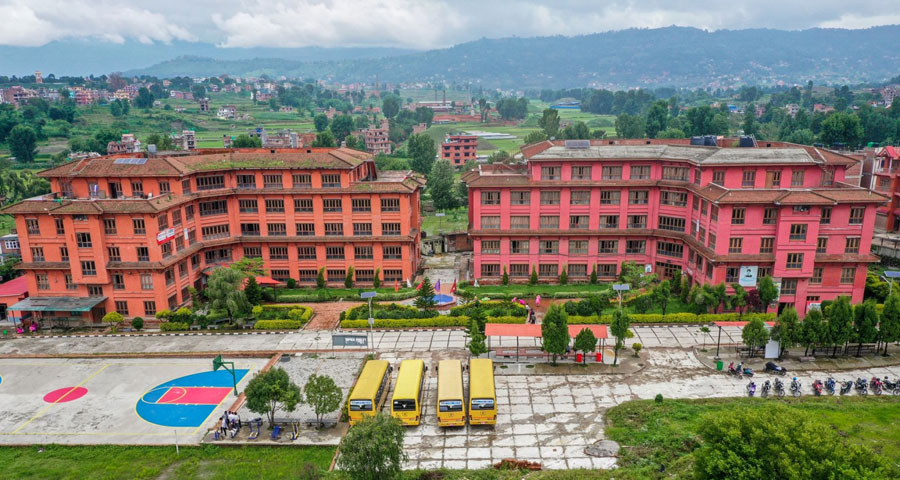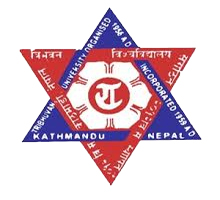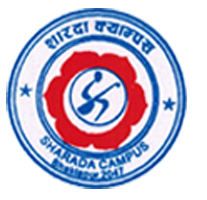Overview
Master of Education in Population Education (M.Ed. Population) at Khwopa College, Bhaktapur
M.Ed. in Population Education at Khwopa College, Bhaktapur, affiliated with Tribhuvan University, focuses on teaching-learning, research, and curriculum practice in population studies.
The program serves educators and development professionals who need subject depth in demography, health education, environment, and life skills, along with classroom practice suited to Nepali schools and colleges.

Highlights
-
TU-affiliated master’s program focused on pedagogy and applied research
-
Coursework on population dynamics, health communication, and curriculum processes
-
Practical components in teaching practice, assessment, and educational research
-
Access to RMC-supported research guidance, library journals, and EMIS notices
-
Scholarship windows based on achievement and institutional policy
Curriculum Details
Core areas typically cover:
-
Population studies: fertility, mortality, migration, and Nepal census use
-
Health and population education content for school and college levels
-
Curriculum processes, instructional strategies, and assessment tools
-
Educational research methods, statistics, proposal writing, and thesis or project
-
Cross-cutting themes: adolescent health, life skills, environment, and civic values
Students analyze national datasets, prepare teaching plans, and complete microteaching, lesson observations, and reflective reports.
Objectives
-
Prepare educators who can teach population education confidently at secondary and higher levels
-
Strengthen capacity for curriculum adaptation, inclusive pedagogy, and assessment
-
Promote research habits that support evidence-based teaching in Nepali classrooms
Scope
Graduates work as teachers, lecturers (as per TU/PSC norms), curriculum facilitators, textbook contributors, education officers, and trainers in government or NGO/INGO programs. Research roles in education planning and population-focused projects are common next steps.
Learning Outcomes
-
Interpret demographic indicators and link them to classroom content
-
Plan effective lessons that address student diversity and local context
-
Conduct school-based research and present findings with accuracy
-
Use assessment tools that track learning progress fairly
Skill Development Modules
-
Academic writing and publication basics for education journals
-
Data-handling with spreadsheets for simple demographic analysis
-
Health communication techniques and community outreach planning
-
Classroom observation, mentorship, and feedback cycles
Teaching Methodology
-
Graduate seminars, tutorials, and guided reading
-
Microteaching, lesson planning, and supervised classroom practice
-
Workshops on assessment, item writing, and rubric use
-
Assignments, internal tests, research proposals, and pre-board before TU finals
Admission Requirements
-
Bachelor’s degree in Education or a relevant field meeting TU criteria
-
Documents as per college notice; interview or counseling if announced
-
Seat confirmation within published deadlines
Career Opportunities
-
Secondary and higher secondary teacher in population education or health education
-
College-level teaching subject to university norms
-
Roles in curriculum support units, district education offices, NGOs, and training centers
-
Pathways to MPhil/PhD or specialized research positions
Scholarships and Financial Aid
-
Entrance-based and performance-based schemes per college policy
-
Consideration for community-school graduates and defined quotas
-
Support for financially challenged but high-performing students after committee review
Why Choose This Course?
M.Ed. Population Education at Khwopa College connects pedagogy with Nepal’s real demographic and health challenges. Teaching practice, research guidance, and local data use help educators create lessons that students understand and remember.
Conclusion
M.Ed. Population Education at Khwopa College offers a clear route for educators who want deeper subject knowledge and classroom skill under TU. The program supports practical teaching, sound research, and ethical practice suited to Nepali schools and colleges.















